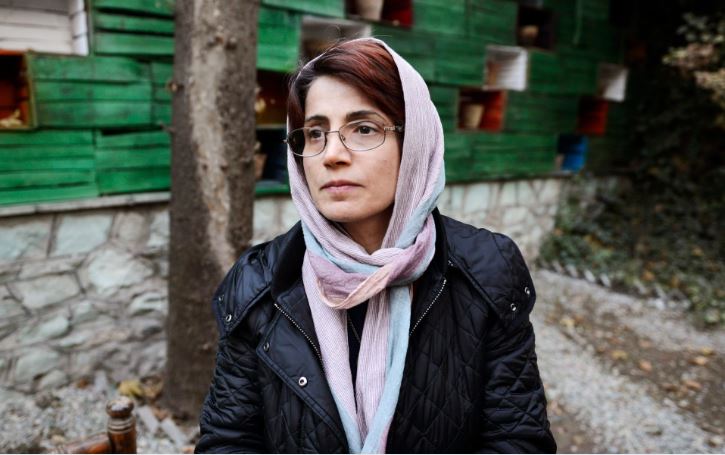
15 August 2018 – One of Iran’s most prominent human rights lawyers has been sentenced to five years imprisonment for criticising the country’s judiciary, according to her family.
Lawyers for Iran’s award-winning human rights advocate, Nasrin Sotoudeh, said Wednesday that her five-year sentence on spying charges was unlawful as she was never charged or given the chance to appear in court.
Sotoudeh, 55, a well-known defender of dissidents in Iran, was arrested in June and told she had already been found guilty “in absentia” on spying charges by Tehran’s Revolutionary Court.
One of her lawyers, Payam Derafshan, told AFP the trial took place some time ago, but that the sentence was not implemented until she then represented several women arrested earlier this year for protesting against the mandatory wearing of the Islamic headscarf in public.
Her defence team said no espionage charge was ever included in her charge sheet, which instead listed other charges including “propaganda against the system”.
“There is no evidence in her file for the charge of spying, no report by the intelligence ministry to explain how she is a spy,” Derafshan told AFP.
After a complaint was made to the judge, he added another charge related to her advocacy work against the death penalty, Derafshan said.
“Nowhere in the law is it a crime to call for the gradual repeal of the death penalty. Even officials and experts talk about eliminating the death penalty for drug offences,” Derafshan told IRNA on Tuesday.
Earlier this year, Sotoudeh took on the cases of several women who had been arrested for standing in public areas without their headscarves, which have been mandatory in Iran since shortly after the Islamic revolution of 1979.
She won the European Parliament’s prestigious Sakharov human rights award in 2012 for her work on high-profile cases, including those of convicts on death row for offences committed as minors.
She spent three years in prison between 2010 and 2013 for “actions against national security” and spreading “propaganda against the system” and remains banned from representing political cases or leaving Iran until 2022.
Sotoudeh has defended journalists and activists including Nobel Peace laureate Shirin Ebadi and several dissidents arrested during mass protests in 2009 against the disputed re-election of hardline president Mahmoud Ahmadinejad.
She had recently spoken out against a new criminal code that allowed only a small number of lawyers to represent individuals charged with state security offences — just 20 for the whole of the capital Tehran for instance.












 Posted in
Posted in 










